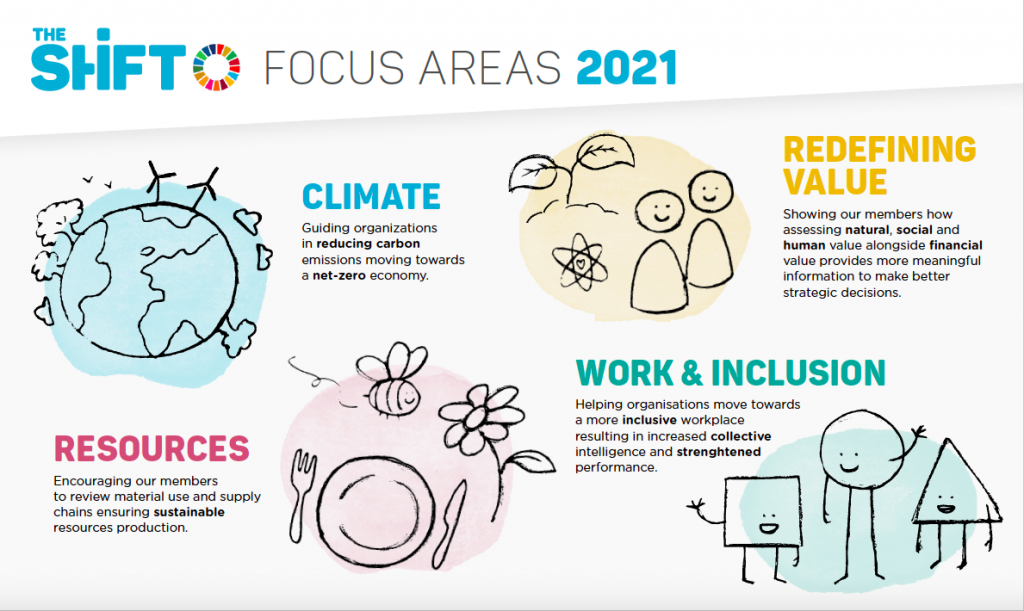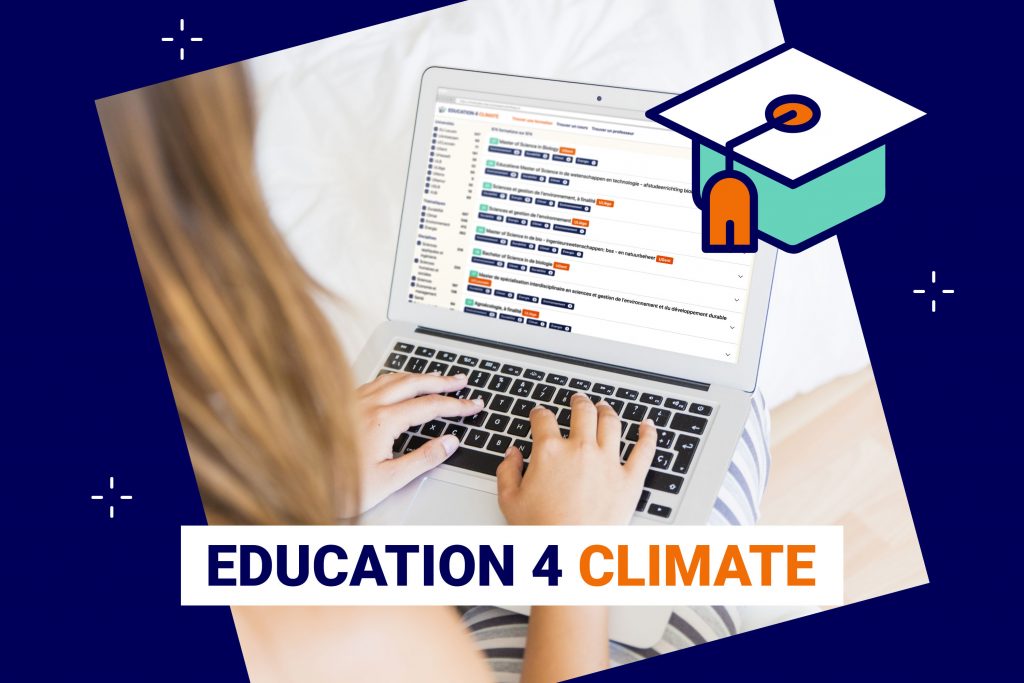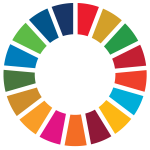Esta web utiliza cookies para que podamos ofrecerte la mejor experiencia de usuario posible. La información de las cookies se almacena en tu navegador y realiza funciones tales como reconocerte cuando vuelves a nuestra web o ayudar a nuestro equipo a comprender qué secciones de la web encuentras más interesantes y útiles.
A Scalable Web-based Application to Search for Environmental Sustainability-related courses, programs and professors in Belgian Universities
Description
Institution
The Shifters Belgium

Organizations/areas of the university involved
The project is led by the Shifters Belgium, in partnership with the Belgian branch of SDSN and The Shift. The Shifters is a global network of more than 10,000 volunteers whose mission is to promote a post-carbon society.
Country
Belgium
Open access web-based application to retrieve climate and environmental sustainability courses and programs, as well as professors with proven expertise in this field across Belgian Universities.
Climate and environmental sustainability have become a major concern for youths, as confirmed by a large-scale survey we have conducted amongst Belgian university students. Yet, we found that very few graduation programs in Belgian Universities tackle climate and environmental sustainability. As a result, the number of graduated students who receive a master-level education on these topics is very low, in comparison with the up-coming environmental challenges our societies are facing.
In addition, a survey conducted amongst professors indicated that knowledge in these fields is quite fragmented, and professors have little visibility on their peers with education expertise on climate and environmental sustainability, which limits trans-disciplinary approaches. Furthermore, whenever professors are willing to tackle these topics within their courses,they often face the need of finding support or guidance from peers who have already taken this step. In this context, we have developed a simple web-based application that enables to identify climate and environmental sustainability courses, programs and professors with proven education expertise in this field.This application crawls the universities websites to retrieve course descriptions and uses an algorithm to analyze their content. The targeted users are: future students looking for programs or universities that addresses best their desire to be educated on climate and environmental sustainability, institutional heads of education programs requiring efficient mapping of courses, students seeking for professors, or professors seeking for peers with educational expertise in these areas.
We believe our application will help students to fulfill their desire to take the courses that educate them best on climate and environmental sustainability, it will help program leaders and decision makers building more ambitious training programs by offering a quantitative mapping tool for benchmarking, trending and long-term evaluation, and lastly help professors finding the GO TO peers to step in climate and environmental sustainability teaching.
We plan on reporting our study out to Belgian University leaders and politicians and advocate for ambitious transdisciplinary education programs on environmental sustainability, enabling students for the coming environmental challenges.
Results and impact measured or expected
The first outcome is the web-based application. Its impact will be measured through the traffic going-though, as well as its level of cross-referencing on different websites. Lastly, scaling-out the platform to other countries would be an excellent impact indicator.
The second outcome is to report out our mapping of the present state of environmental sustainability teaching in Belgian Universities, together with the voice of students and professor survey. The report, to be published at the launch of the COP 26, will be presented to Universities leaders, politicians and decision makers to urge them to take actions for ambitious transversal education on environmental challenges, with the clear goal of offering graduates with sufficient background to take the raising climate and environmental challenges. The expected impact is to trigger a public debate and engagement from decision makers.
Connection with the SDG framework
The web-based application supports the learning on the SDGs to a high extent. For the first time there is a full, extended and totally up-to-date mapping of sustainable development within curricula. It will enhance the awareness-raising and mind-setting of students. It will also facilitate inter- and multidisciplinary education and research on sustainable development within and amongst universities. At policy level the board of governors of the higher education institutions now have a tool to compare and the evidence to enhance their efforts. To our knowledge, this is very first time an inter-universities platform that regroup education information on programs, courses and professors on climate and environmental sustainability was developed; and we believe it has value to be expanded to as many countries as possible.
Barriers and follow up
The Covid19 crisis, together with the fact that the project is driven by volunteers with limited time resources, led us to limit the scope to Belgian Universities only and restrict to climate and environmental sustainability. Likewise, contacting students and professors in a virtual mode also added a challenge, to the communication of the project. The development of the application faced quite a few hurdles, all of which could all be addressed thanks to the very large network of the Shifters (> 8,000 members in the EU), some of which with outstanding programming skills. Lastly, mentoring support from the Belgian SDSN and The Shift was an asset for the completion of the project.
Transferability of the initiative
Our application was developed with scale-out in mind: it only takes about 3 hours to implement a new university or high school, so one programmer can easily implement 15-20 university within one week of work. The application is stable in time, as long as the structure of the university website doesn’t change. So, maintenance is expected to be very limited. In addition, only simple changes to the library of key words used by the algorithm are required to identify courses and programs covering other Sustainable Development Goals than climate and environmental sustainability, thus offering the possibility to expand the application to, essentially, all SDGs. We expect that the scaling-out of this application should facilitate international collaborations and networking between universities.
Education 4 SDG funciona gracias a WordPress


